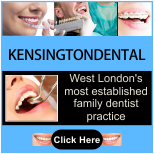Fat soluble vitamins are essential micro-nutrients required by the body for various functions. One can get these in fat containing foods. Fat soluble vitamins are not needed regularly in our daily diet, unlike water soluble vitamins because they are stored in the liver and fatty tissues for future use. If you take more than required, it can be toxic and leads to health problems.
Four types of fat soluble vitamins:
Four types of fat soluble vitamins:
- Vitamin – A
- Vitamin – D
- Vitamin – E
- Vitamin – K
| Parameters | Vitamin - A | Vitamin - D | Vitamin - E | Vitamin - K |
| Chemical name | Retinol | Ergocalciferol (vitamin D2) and Cholecalciferol (vitamin D3) | Tocopherol | Phylloquinone (vitamin K1) and Menaquinones (vitamin K2) |
| Food sources | Apricot, liver, sweet potato, carrots, pumpkin, winter squash, spinach, mango, acorn, kale, broccoli, peaches, papaya, dairy products, fish, etc. | This vitamin can be synthesized by your body, when your skin is directly exposed to sunlight. Foods sources are mushrooms, cheese, butter, milk, fish, cod liver oil, cereals, egg, etc. |
Almonds, peanuts, spinach, sunflower oil, safflower oil, corns, broccoli, cereals, liver, egg yolk, etc. | Cabbage, asparagus, spinach, turnip greens, cauliflower, fish, meat, eggs, oats, etc. |
| Functions | It helps in the formation and maintenance of teeth, skin, mucous membrane, soft tissue. It is involved in cell differentiation, immune system, reproduction and vision. | It helps in absorption of calcium by kidneys and intestine. And also helps in bone calcification. It also helps to maintain blood levels of calcium and phosphorous. | It is a powerful anti-oxidant and helps against cancer, heart diseases, signs of aging. And also protects the cells, tissues and organs from free radicals. | It helps in synthesis of blood clotting factors. |
| Deficiency | If you don't get enough vitamin A, you may become prone to infectious diseases and problems related to vision. Vitamin A deficiency diseases are xerophthalmia, anemia, xerosis, immune suppression, hypovitaminosis-A, impaired tissue growth, etc. |
Vitamin D deficiency:
|
Hemolysis of red blood cells, anemia, degeneration of sensory neurons | Vitamin K deficiency causes hemorrhage. It can be seen in infants or in people who take anti-coagulants. |
| Symptoms of vitamin deficiency | Dry and rough skin, night blindness, etc., indicates that body is lacking vitamin A | Bowed legs, muscle weakness, bone weakness, loss of bone mass, etc. | Nausea, fatigue, blurred vision, etc. | Gum bleeding, nose bleeding, bleeding in digestive tract, etc. |
| Signs or symptoms due to over dosage of vitamin supplements | Over dosage of vitamin A are toxic and results into headache, dizziness, nausea, blurred vision, loss of appetite and also chances of birth defects. | Nausea, vomiting, slows mental and physical growth. | Risk of serious bleeding in the brain. | Excess intake of vitamin K leads to liver damage and break down of red blood cells (RBCs) |



.png)